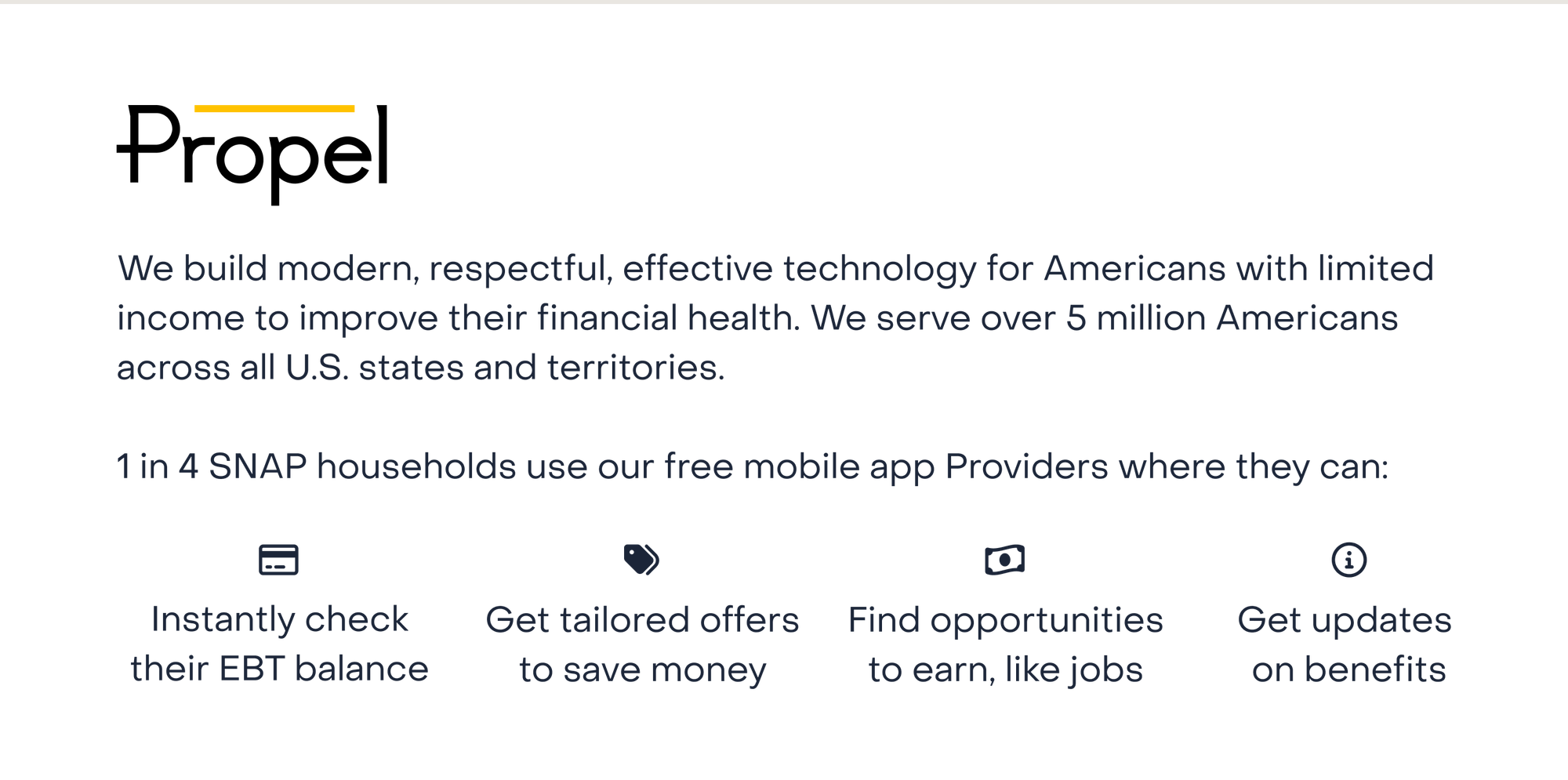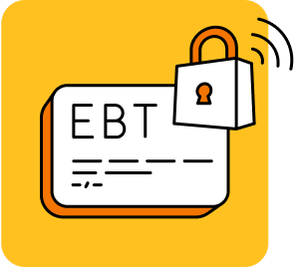'$30 Goes a long way': SNAP households and the Affordable Connectivity Program
For almost 23 million American households with low incomes, navigating tight budgets and high living costs may soon get even tougher.
FEBRUARY 27, 2024#february-27-2024
In late April, funding for the Affordable Connectivity Program (ACP) is expected to run out, endangering three critical years of progress in closing the digital divide. Recently, we surveyed over 1,700 ACP-enrollees who use the Propel app about what the broadband benefit has meant to them and how their lives will change if it expires. Here’s what we found:
- Nearly one-quarter of low-income households surveyed said that they would stop internet services altogether if ACP funding were to expire.
- Survey respondents use the internet for essential everyday activities, including work/job opportunities (44%), education (40%), health care (41%), online banking (48%), accessing government services (53%), finding food (33%).
- 58% of respondents say that affording internet access is at least somewhat difficult, even with the ACP.
- 60% of respondents are first-time subscribers to internet service through the ACP.
The takeaway is clear: Unless the ACP is extended, families will have to make impossible tradeoffs between essential expenses or lose internet services altogether.
About the ACP#about-the-acp
Since 2021, the ACP has provided eligible households a discount of up to $30 per month toward their internet bills and a one-time stipend for a device. Under its eligibility guidelines, the ACP serves either households with incomes at or below 200 percent of the federal poverty level or those enrolled in public assistance programs such as SNAP, Medicaid, SSI, federal affordable housing initiatives, and national school breakfast and lunch programs. Nearly five million ACP beneficiaries are over the age of 65 and over three million are households with school-age children.
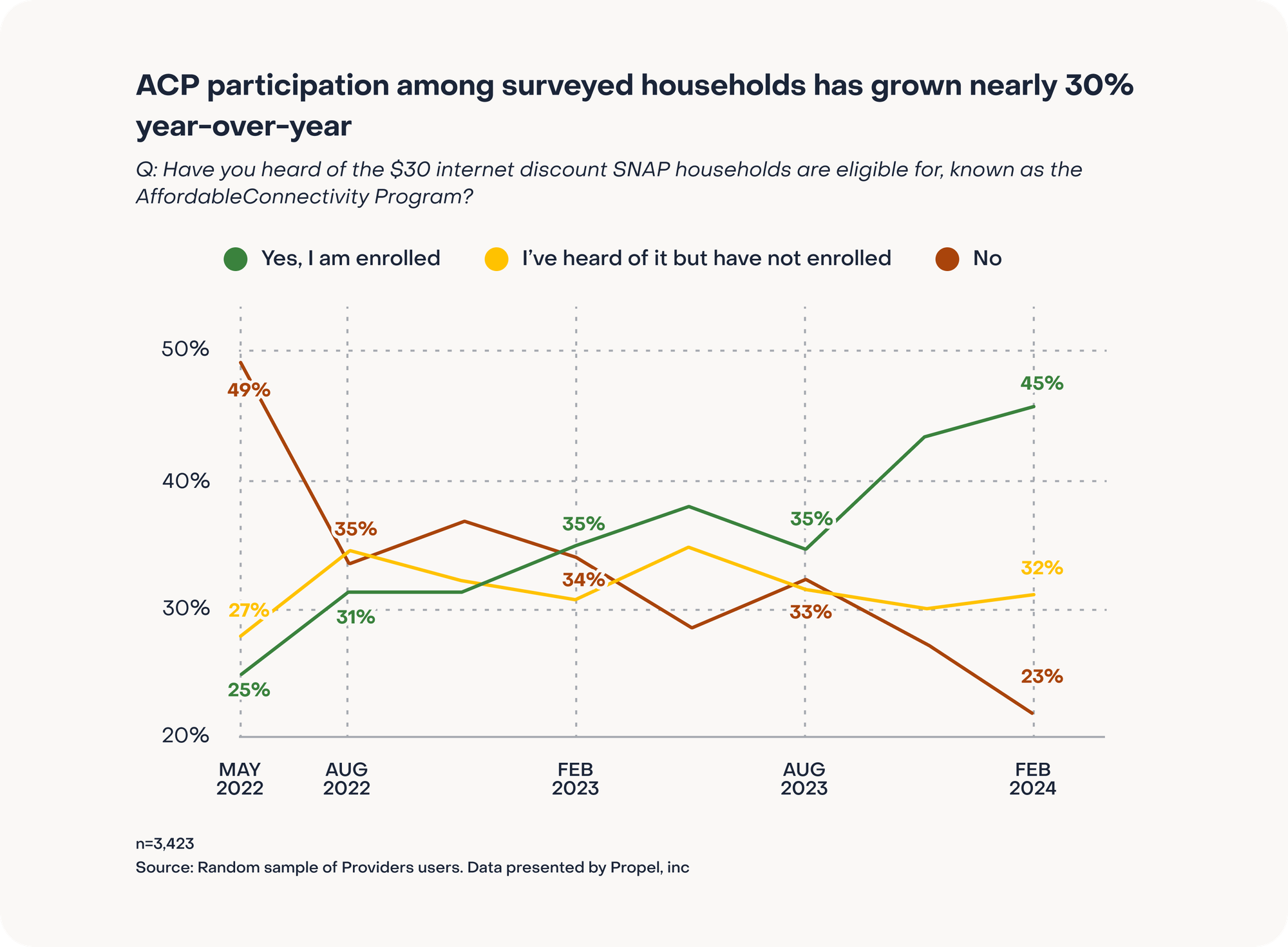
For thousands of Propel households, the ACP is ‘an answered prayer’#for-thousands-of-propel-households-the-acp-is-an-answered-prayer
The ACP’s impact is clear for the millions of households nationwide that use the Propel app each month to manage government benefits, conduct banking, and save and earn money. Of the five million-plus households using Propel, around 45 percent are enrolled in the ACP – 60 percent of which report being first-time internet subscribers through the program. These families generally have little savings or discretionary income, and stand to suddenly face annual broadband charges of $360 or more if ACP funding expires. Over 86 percent of our surveyed users access the internet almost constantly or several times a day for essential everyday activities, including work and finding job opportunities (44%), education (40%), health care (41%), online banking (48%), accessing government services (53%), and finding food (33%).
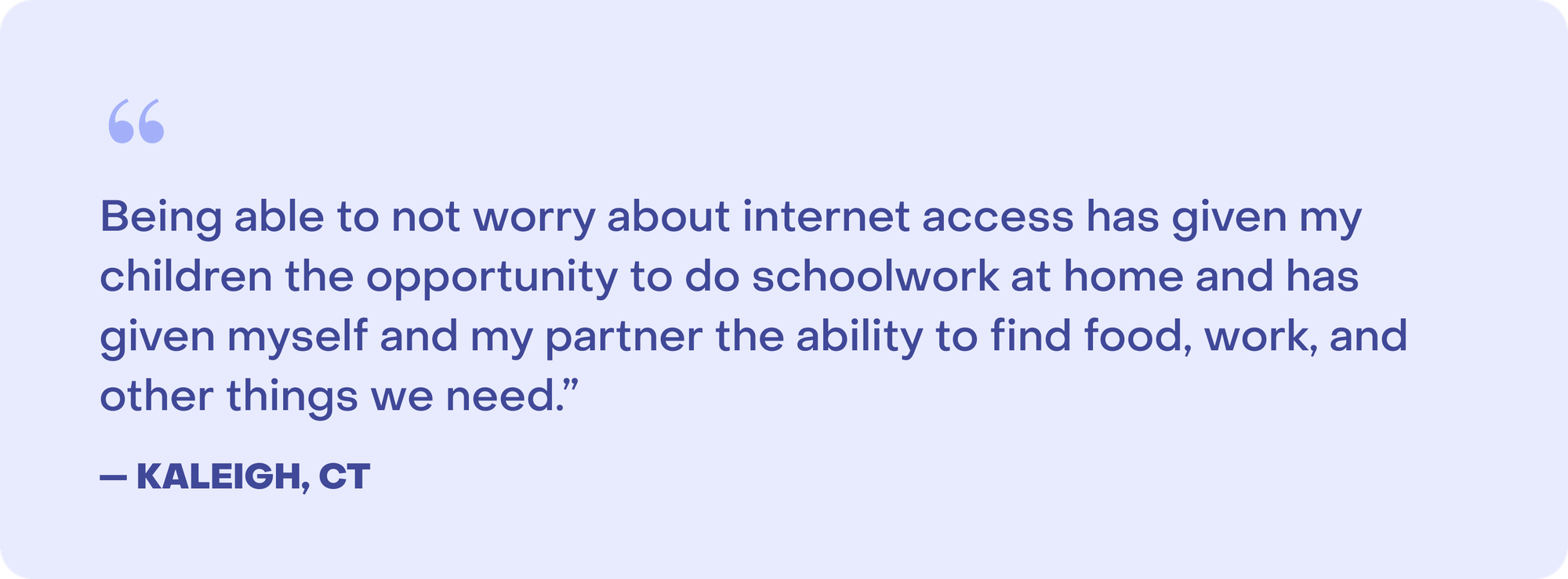
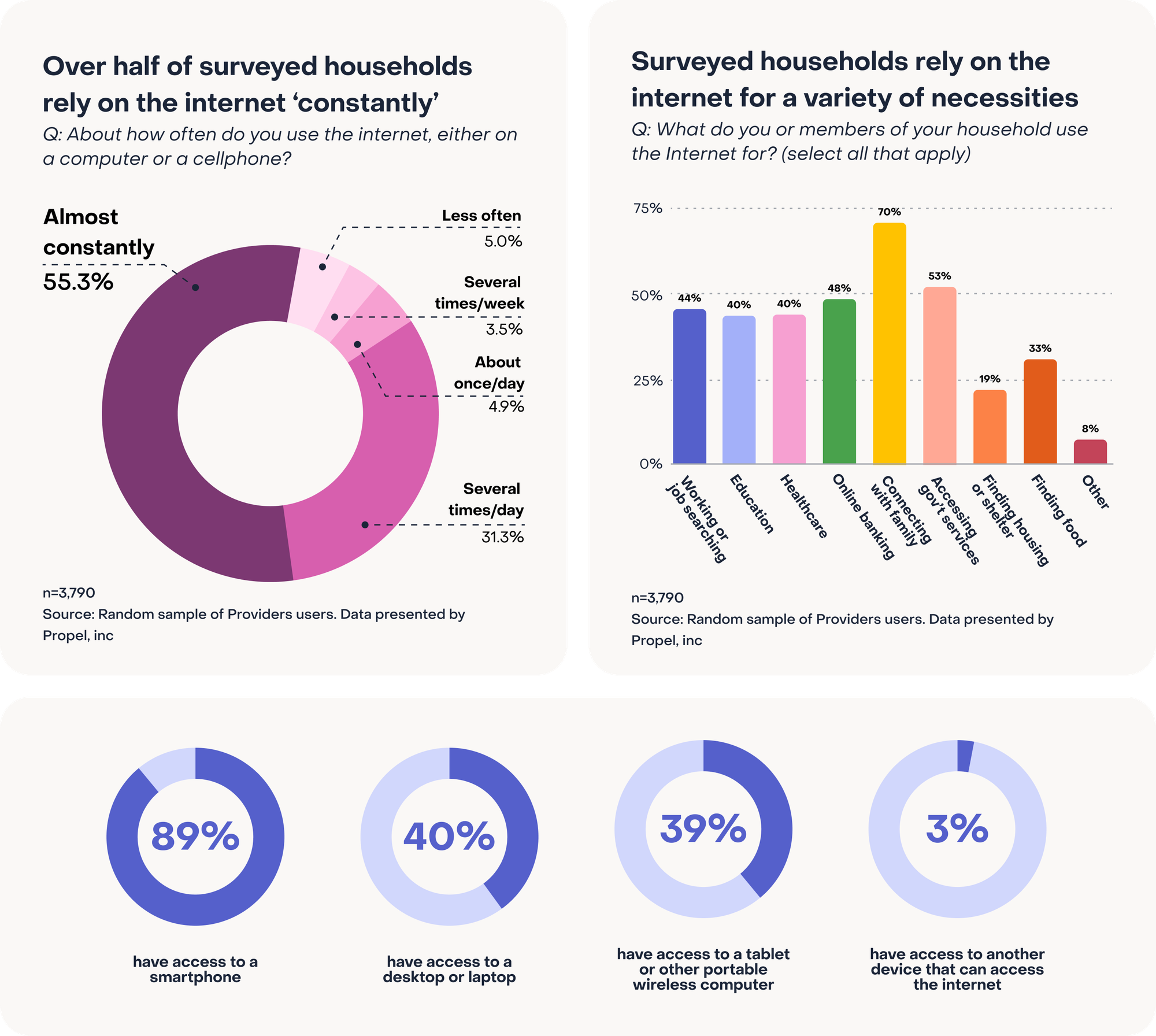
The pandemic-era shift to online school and remote work exposed broadband as a necessity. According to a 2023 Consumer Reports survey, nearly 80 percent of Americans believe that today, internet access is as important as water or electricity as a household utility. Researchers have found that subsidized broadband increases employment rates and earnings due to higher rates of labor force participation. For low-income households, these benefits can amount to $2,200 annually, according to one study published in 2021.
Affordable internet access levels the playing field by unlocking job opportunities, online education, telehealth, and online banking – not to mention the gains in overall wellbeing from being socially connected. Over 70 percent of surveyed Propel households cite connecting with family and friends as their primary reason for accessing the internet. And, the ACP has reached communities that need connectivity most. Eight of the top 10 states with the highest program enrollment rates have some of the largest “internet deserts.”
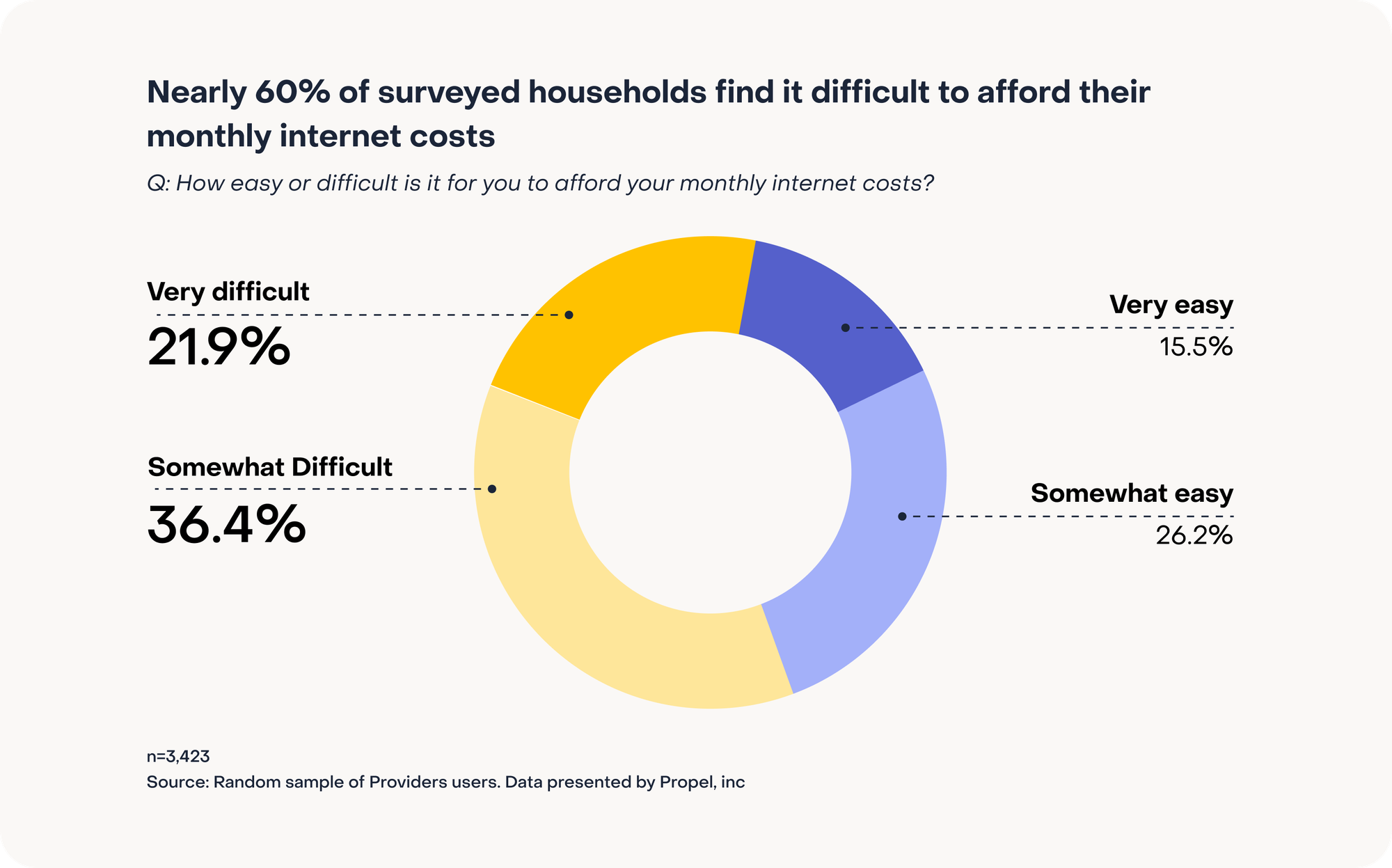
Even with the subsidy, 45 percent of 1,700 ACP recipients we surveyed in February 2024 still pay more than $30 a month for internet service. Around 60 percent of surveyed enrollees still find affording internet service at least somewhat difficult. But the investment has been worthwhile. Hundreds of Propel users have shared their experiences of how the benefit has expanded career and educational opportunities, helped them reach their doctors, and allowed them to feel connected to their communities and the world at large.
Critically, the ACP is running out of funding during a time of protracted food and financial hardship for low-income households. Twenty-four percent of surveyed Propel users enrolled in the ACP believe they will need to stop internet services altogether if the discount ends, and 14 percent believe they will need to spend less on rent, groceries, and other necessities.
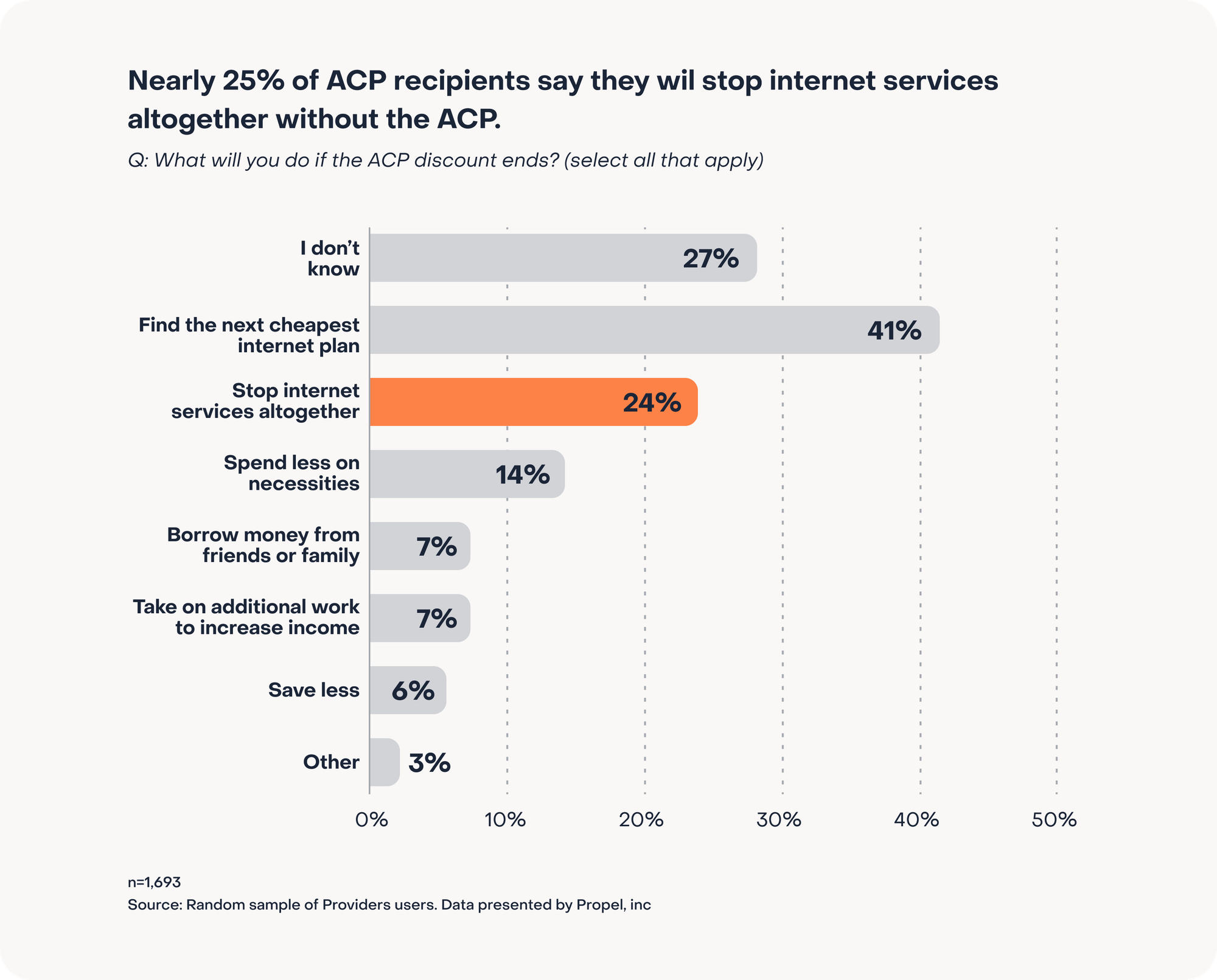
These tradeoffs are not new to low-income families. Last March, SNAP benefits were significantly reduced nationwide following the end of temporary pandemic-era increases. The average SNAP beneficiary received around $90 a month less in food benefits, with some households seeing reductions of $250 a month or more. Subsequent months showed a notable rise in food hardship alongside increased financial insecurity as Propel households struggled more with rent and utilities while spending more on food out-of-pocket. Our February 2024 survey insights indicate that these compound pressures are ongoing; year-on-year, 20 percent more respondents are skipping meals on a monthly basis, 40 percent more are visiting food pantries monthly; and 53 percent more are reliant on family and friends for their meals and groceries.
The ACP both reduces internet service costs and frees up funds for food, household essentials, and other bills. Propel users make it unequivocally clear that continued funding for the ACP is not just a matter of democratizing broadband access; it is about preserving economic welfare, educational opportunities, access to critical services, and social participation for millions of Americans.

Hear from the Propel community:#hear-from-the-propel-community
We asked our users to share what the Affordable Connectivity Program (ACP) means to them. In the table below you can sort through real quotes from 200 real Propel users and the messages they felt were most important to share.
